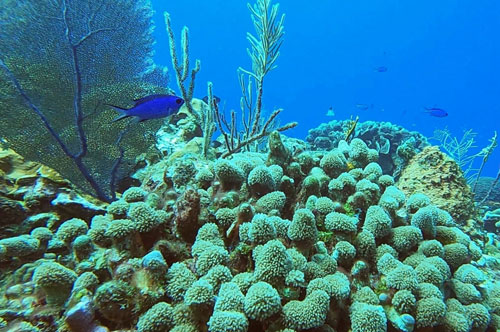Paris
Warming waters have driven thousands of ocean species poleward from the equator, threatening marine ecosystems and the livelihoods of people who depend on them, researchers reported Monday.
Comparison of data on nearly 50,000 species over three 20-year periods up to 2015 revealed that the exodus from tropical waters is accelerating, they reported in the journal PNAS.
The tropics have long harboured an outsized proportion of marine life, but could see that diversity disappear if climate change is not brought to heel, the authors warned.
“Global warming has been changing life in the ocean for at least 60 years,” senior author Mark Costello, a professor of marine biology at the University of Auckland, told AFP.
“Our findings show a drop of about 1,500 species at the equator,” he added. “This will continue throughout the century, but the pace will depend on how we reduce—or not—greenhouse gas emissions.”
Poleward migration was more pronounced north of the equator, where oceans have warmed more quickly than in the southern hemisphere.—APP










